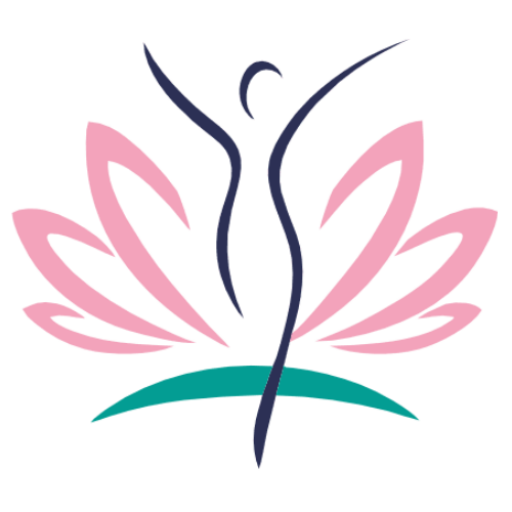The terms PCOS (Polycystic Ovary Syndrome) and PCOD (Polycystic Ovary Disease) are often used interchangeably. However, while they share similar symptoms and underlying issues, they are not exactly the same.
In this blog, we will break down the difference between PCOS and PCOD, provide a comprehensive understanding of both conditions, and discuss the symptoms, causes, treatment options, and how to manage them.
What is PCOS (Polycystic Ovary Syndrome)?
Polycystic Ovary Syndrome (PCOS) is a common hormonal disorder that affects women of reproductive age. It is characterized by an imbalance in reproductive hormones, leading to irregular or absent menstrual cycles, cysts in the ovaries, and difficulty in conceiving. PCOS affects about 1 in 10 women of reproductive age and is one of the leading causes of infertility.
Key Features of PCOS:
- Hormonal Imbalance: Elevated levels of male hormones (androgens), leading to symptoms like excessive hair growth (hirsutism) and acne.
- Irregular Menstrual Cycles: Women with PCOS may experience irregular or missed periods due to disrupted ovulation.
- Ovarian Cysts: Enlarged ovaries containing numerous small cysts that may be detected during an ultrasound.
- Insulin Resistance: Many women with PCOS also have insulin resistance, which increases the risk of type 2 diabetes.
Symptoms of PCOS:
- Irregular or missed periods
- Excessive hair growth (face, chest, back)
- Acne and oily skin
- Thinning hair or male-pattern baldness
- Weight gain or difficulty losing weight
- Fertility problems
What is PCOD (Polycystic Ovary Disease)?
Polycystic Ovary Disease (PCOD), while often confused with PCOS, is a condition where the ovaries develop numerous small cysts. Unlike PCOS, PCOD does not always result in hormonal imbalance, and many women with PCOD still have regular menstrual cycles. PCOD is more of a structural issue where the ovaries become enlarged and contain many small, immature follicles (eggs), which may not mature and ovulate properly.
Key Features of PCOD:
- Ovarian Cysts: As with PCOS, women with PCOD may have multiple cysts in their ovaries.
- Normal Hormone Levels: Women with PCOD typically do not experience significant hormonal imbalance as seen in PCOS.
- Regular or Irregular Periods: PCOD can affect the regularity of menstrual cycles, but it does not always lead to the severe symptoms of PCOS.
Fertility Issues: Like PCOS, women with PCOD may experience difficulties in conceiving due to problems with ovulation.
Symptoms of PCOD:
- Irregular periods or delayed ovulation
- Difficulty getting pregnant
- Acne, oily skin, and slight weight gain
- No significant increase in male hormone levels
- Cysts in ovaries as shown by ultrasound
Key Differences Between PCOS and PCOD
1. Hormonal Imbalance
- PCOS: Women with PCOS experience hormonal imbalances, specifically elevated levels of male hormones (androgens), which leads to symptoms like excessive hair growth and acne.
- PCOD: Women with PCOD may have normal hormone levels, and hormonal imbalance is not as prominent in this condition.
2. Cysts in Ovaries
- PCOS: In PCOS, the ovaries are typically filled with immature eggs, which can result in cysts. This hormonal imbalance often prevents the eggs from maturing and being released properly.
- PCOD: Women with PCOD also have cysts in the ovaries, but it is not due to a hormonal imbalance. Instead, the cysts are often a result of incomplete egg maturation.
3. Symptoms
- PCOS: The symptoms of PCOS can be more severe, including excessive hair growth, acne, thinning hair, and weight gain.
- PCOD: The symptoms of PCOD are usually milder and often include irregular periods and possible fertility issues, but without the more noticeable symptoms like acne or excess hair growth.
4. Impact on Fertility
- PCOS: Infertility is a common issue with PCOS, as the hormonal imbalance often prevents proper ovulation.
- PCOD: While fertility issues are also common in PCOD, they are often less severe than in PCOS. Ovulation can still occur regularly in many women with PCOD.
5. Treatment Options
- PCOS: Treatment for PCOS usually involves hormonal treatments, like birth control pills, anti-androgens for hirsutism, and fertility medications like Clomid for those trying to conceive.
- PCOD: For PCOD, treatments usually focus on managing menstrual irregularities and improving fertility through lifestyle changes, medications for ovulation, or in some cases, weight management strategies.
How Are PCOS and PCOD Treated?
Both conditions require a different treatment approach due to their varying symptoms and causes. However, the treatments for PCOS and PCOD often overlap in terms of fertility management.
Treatment for PCOS:
- Hormonal Contraceptives: Used to regulate menstrual cycles and reduce the symptoms of excess hair and acne.
- Metformin: This drug is used to treat insulin resistance, commonly seen in women with PCOS.
- Ovulation-Inducing Medications: For women trying to conceive, medications like Clomid and Letrozole are used to stimulate ovulation.
- Weight Management: Managing weight is crucial for improving symptoms and fertility in women with PCOS.
Treatment for PCOD:
- Lifestyle Changes: Maintaining a healthy diet and regular exercise routine can help manage PCOD symptoms.
- Ovulation-Inducing Medications: Like PCOS, medications such as Clomid may be prescribed to help stimulate ovulation for women who have difficulty conceiving.
- Weight Management: Just like with PCOS, maintaining a healthy weight can help manage symptoms and improve fertility.
Conclusion
Understanding the difference between PCOS and PCOD is essential for effective diagnosis and treatment. While both conditions involve cysts in the ovaries, PCOS is more complex, involving hormonal imbalances that affect menstruation, fertility, and other symptoms. On the other hand, PCOD typically involves cysts with fewer hormonal imbalances, and treatment is often more straightforward.
Whether you have PCOS or PCOD, working with a healthcare provider to determine the best treatment plan is key to managing symptoms and improving your overall health.
Frequently Asked Questions (FAQs)
What is the main difference between PCOS and PCOD?
The primary difference between PCOS and PCOD is that PCOS involves hormonal imbalance and severe symptoms like excessive hair growth, acne, and infertility, while PCOD is a condition characterized by ovarian cysts with relatively normal hormone levels and milder symptoms.
Can I get pregnant with PCOS or PCOD?
Yes, it is possible to get pregnant with both PCOS and PCOD, though women with PCOS may face more significant fertility challenges due to hormonal imbalances. Women with PCOD may experience fewer fertility issues.
How do I know if I have PCOS or PCOD?
A doctor can diagnose PCOS or PCOD through blood tests to measure hormone levels, ultrasound imaging to check for cysts, and a thorough review of your medical and menstrual history.

